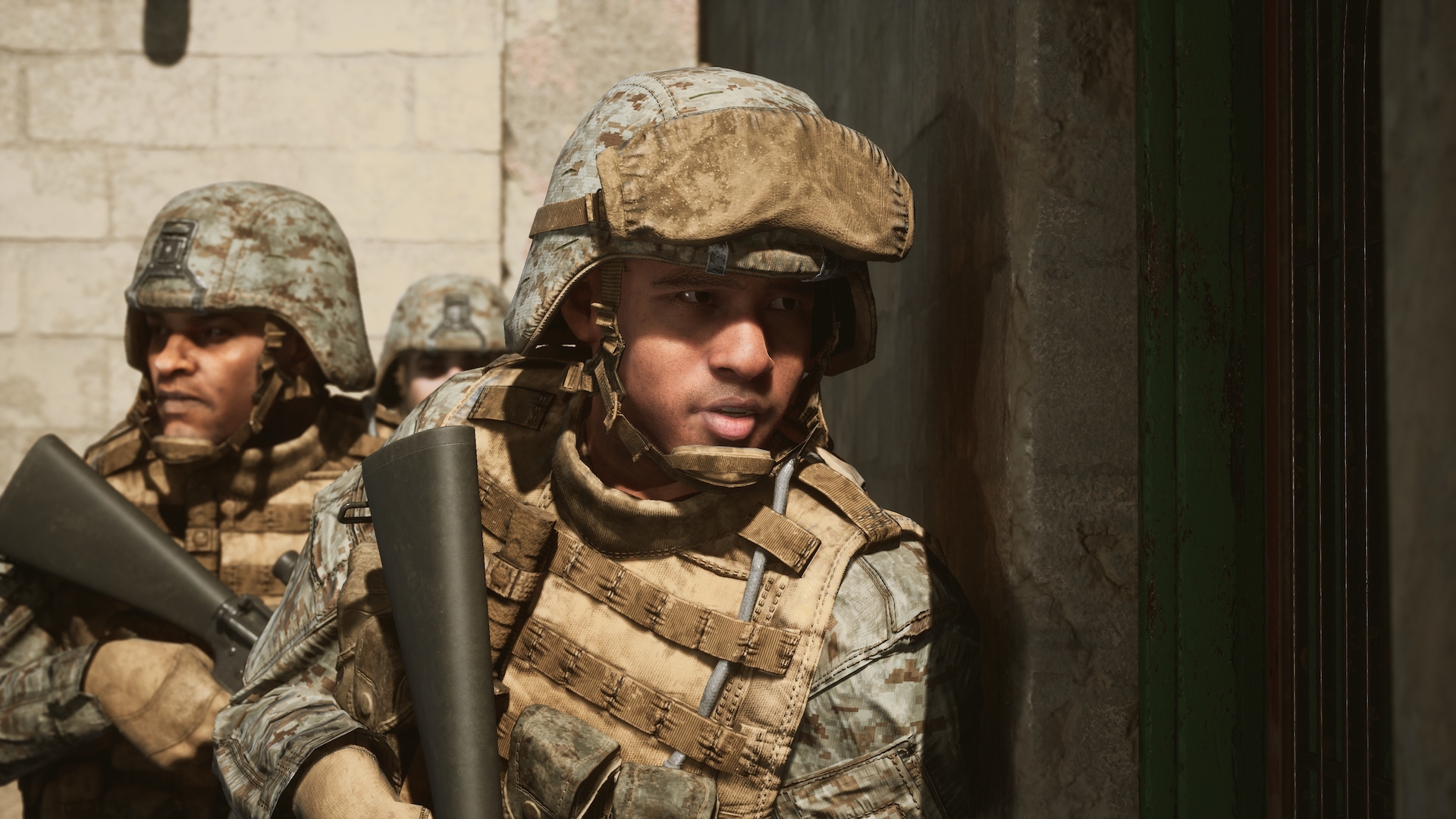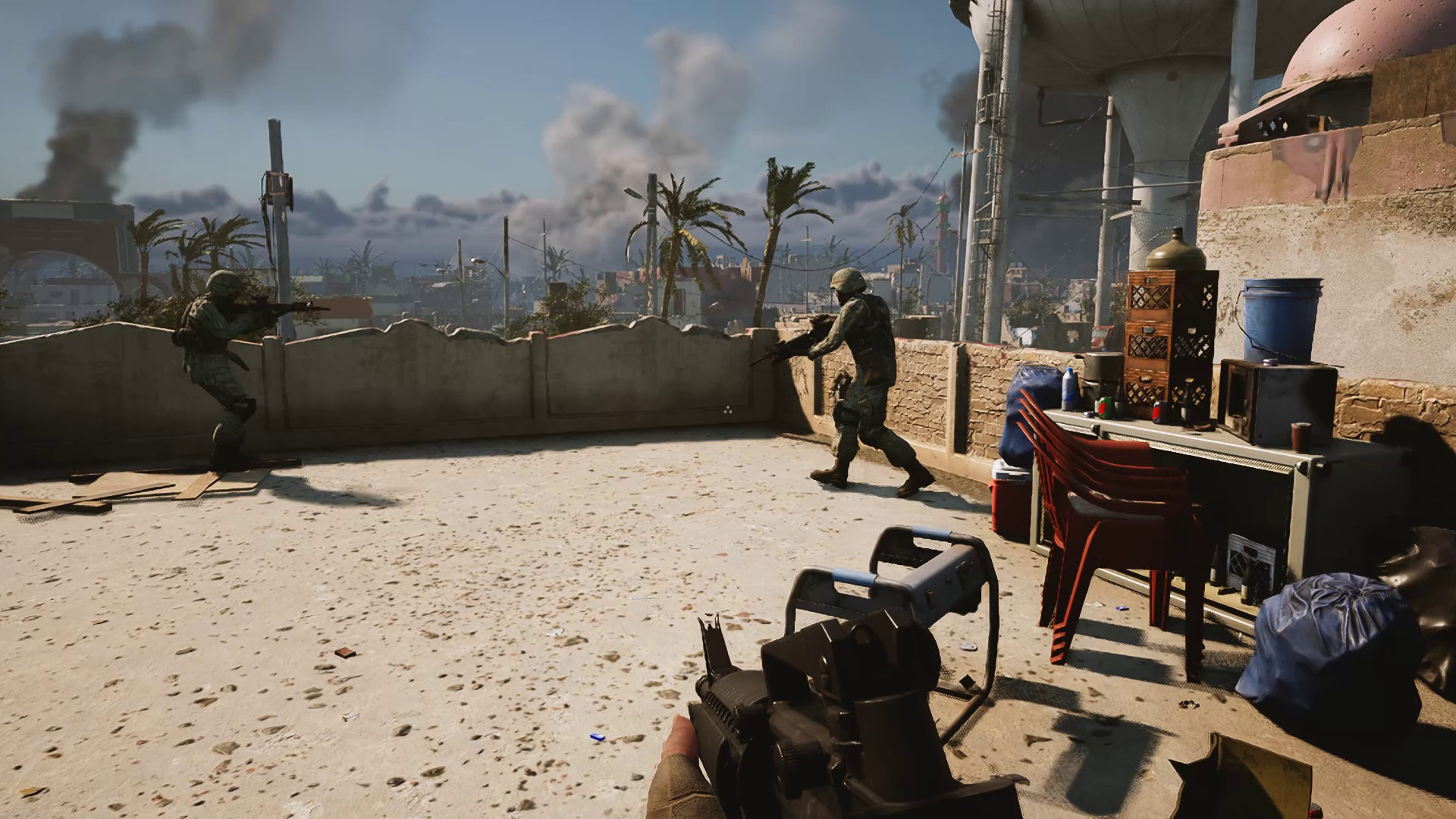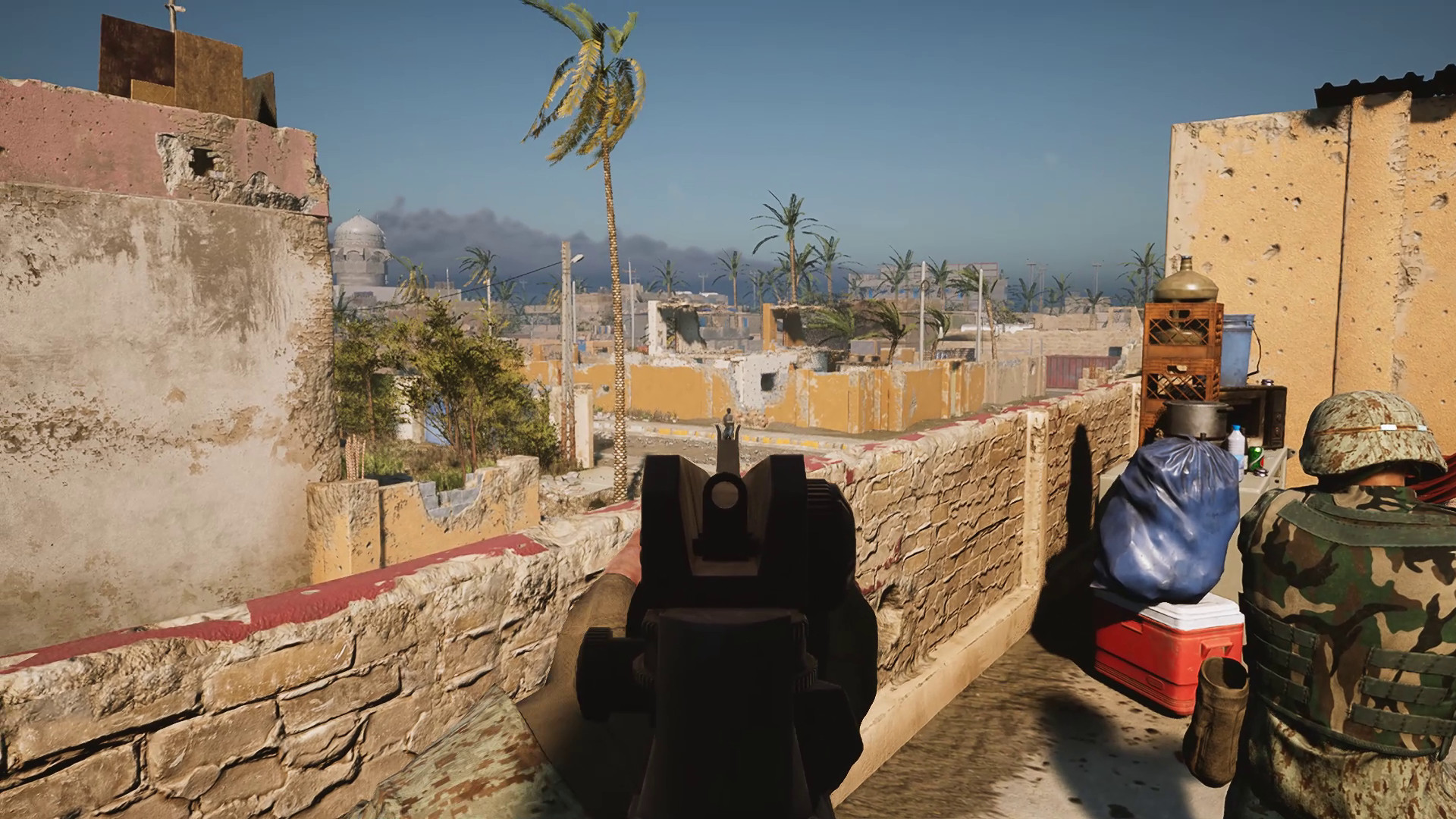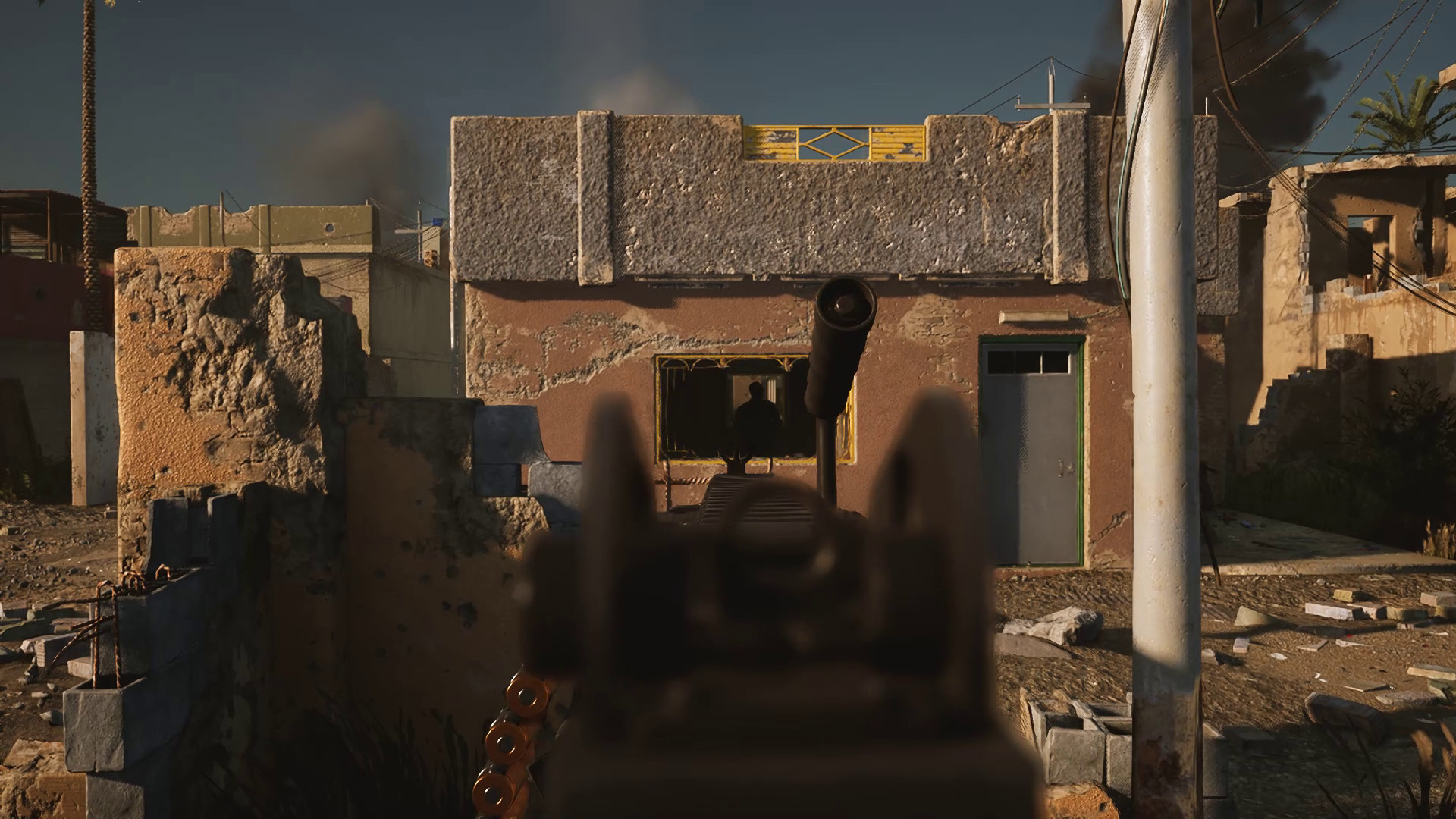The once controversial Six Days in Fallujah is finally out in early access, but it's just a barebones milsim for now
You can do a lot better for $40.

What I love about milsims like Squad, Hell Let Loose, and Foxhole is becoming a small cog in a massive cooperative effort. I love the difficult guns, overwhelming audio, the high stakes of catching even a single bullet, and the intensity of teammates who are buying into the roleplay as much as I am. Sometimes I notice a disconnect between me and my milsim teammates when it becomes clear (typically over voice chat while riding in the back of an APC) that one or two of them aren't just fans of close-knit tactics, they're devoted lovers of military culture who believe US forces can do no wrong.
There is perhaps no game that better represents that disconnect than Six Days in Fallujah, a milsim FPS that depicts the second battle of Fallujah between American Marines (and US coalition forces that included the Iraqi army) and the Iraqi insurgency, a real and devastating battle that took place over six weeks beginning in November 2004.
This is actually the second attempt at making Six Days—the original project collapsed in 2009 after its controversial setting attracted negative attention, and Konami decided not to publish it. A decade later, the man behind the first attempt, Bungie vet Peter Tamte, decided to try again under his own publishing label with developer Highwire Games.
The new iteration of Six Days, announced in 2021, promises to be a responsible interpretation of the battle that depicts not only the American perspective, but also the perspectives of Iraqi civilians, both in the game's singleplayer campaign and through documentary segments played between missions. Just like in 2009, Tamte's insistence that the game isn't trying to be political commentary—an impossible thing for a game steeped in war to do—hasn't instilled confidence in critics that it'll present a realer or more accurate depiction of the US invasion of Iraq.
Now having played the early access release of Six Days in Fallujah that released on Steam for $40 last week, I'm even less convinced Highwire can pull that off.

Unfit for duty
Six Days' singleplayer campaign, the part that claims to tell a nuanced story, doesn't exist yet. The Six Days in Fallujah you can buy right now is a collection of four disconnected co-op missions focused on American soldiers doing everything by the book. The missions can only be played online, there's no friendly AI, no progression, and literally no choice in which missions you play or what role on the squad you're assigned. It's a bit like the SWAT successor Ready or Not, but with a lot less to do.
There's no friendly AI, no progression, and literally no choice in which missions you play or what role on the squad you're assigned.
The only thing you can count on in Six Days in Fallujah at the moment is that every mission is more or less the same. Whether the ultimate goal is to destroy a weapons cache or secure a rooftop mortar site, between you is a city block's worth of buildings with insurgents hiding in them. The map layouts and enemy placements are procedurally generated, so you can't just memorize a golden path, but a grid of slightly different square buildings than the last six missions gets boring pretty fast.
Keep up to date with the most important stories and the best deals, as picked by the PC Gamer team.
The only part of Six Days that actually feels ready at the moment is its basic breach-and-clear combat. Everything about the way your soldier controls is purpose-built for making building infiltrations as nerve-wracking as possible: you walk very slowly by default, doors have to be slowly opened or breached, and it's so dark that you have to stay in ADS view, flashlight pointed forward, to see anything. Opening a door when you don't know what's on the other side is legitimately scary. Death comes quick enough that most of the time I was shooting at silhouettes and shadows in fear that they'd shoot at me first.

You're encouraged to use the game's built-in proximity chat to coordinate room clearings, cover each other's backs, and call for help. It's one of the better chat systems I've used in a milsim—proximity chat is on by default at all times, and pressing space bar occupies one of your hands to click your chest-mounted radio to speak over longer distances, preventing you from aiming. Voices echo only while indoors and radio calls crackle to an annoying, but perhaps authentic, degree.
A few other realistic touches that I like:
- You don't know how many bullets are left in a magazine unless you manually check, a similar system to the Red Orchestra and Rising Storm series
- When you get shot, you have to take cover and stand so your soldier can check if they're bleeding. If you're lucky, it was just a graze or absorbed by armor, but you have to confirm
- There are two ADS modes: one where you hold your gun low at your shoulder pointed forward, and a "true" ADS mode that actually looks through iron sights but blocks your peripheral vision
Because Six Days tries so hard to sell itself as the true story of what happened in Fallujah, what's not in the simulation is all the more glaring.
As a shooter, Six Days stands up pretty well against other milsims. But as a setting, there are some objectionable omissions in Highwire's rendition of Fallujah. The hundreds of Iraqi civilians who died in the battle are not depicted at all. The only other characters on the map, besides you and your American buds, are faceless insurgents to be exterminated. Highwire does plan to add civilians in an early 2024 update (around the same time the campaign will arrive), but even in these disconnected co-op missions, their omission betrays the historical authenticity the game claims to value.
Were Six Days in Fallujah just another "wargame" milsim devoid of context, it'd be easy to accept that it's picking and choosing which real-life tactics to simulate based on what's fun, but because Six Days tries so hard to sell itself as the true story of what happened in Fallujah, what's not in the simulation is all the more glaring. The game's official FAQ promises to show us what real combat was like in the battles of Fallujah, better than TV or movies have been able to accomplish.

"For generations, we've tried to understand combat by watching a TV or movie screen to see what happened to somebody else," states the developer on the official product page. "Six Days in Fallujah challenges you to solve these real-life situations for yourself. After all, if a picture is worth a thousand words, being there must be worth a million."
If Highwire really wants to paint a realistic picture of the US military's Fallujah campaign, then I expect to see its illegal use of white phosphorus. And maybe I should get to fire off a few of those depleted uranium rounds that've been linked to birth defects among Fallujah locals in the 20 years since the battle.
Again, there is a chance Six Days in Fallujah's planned singleplayer campaign will engage with its source material in a deeper way, but this opening salvo isn't a good impression. Highwire says it interviewed 28 Iraqi civilians in the making of Six Days, but the only two "documentary" segments in the current build of the game (videos that roll in fullscreen before the game loads and when you select the co-op mode) place the focus squarely on US veterans. What I'm seeing is a game that's more interested in depicting American valor than the actual losers of the story it's telling: Fallujah.
There's just barely anything there in this early access debut. I've had my fill of its four missions after less than 90 minutes. For $40, you can do a lot better right now.

Morgan has been writing for PC Gamer since 2018, first as a freelancer and currently as a staff writer. He has also appeared on Polygon, Kotaku, Fanbyte, and PCGamesN. Before freelancing, he spent most of high school and all of college writing at small gaming sites that didn't pay him. He's very happy to have a real job now. Morgan is a beat writer following the latest and greatest shooters and the communities that play them. He also writes general news, reviews, features, the occasional guide, and bad jokes in Slack. Twist his arm, and he'll even write about a boring strategy game. Please don't, though.

